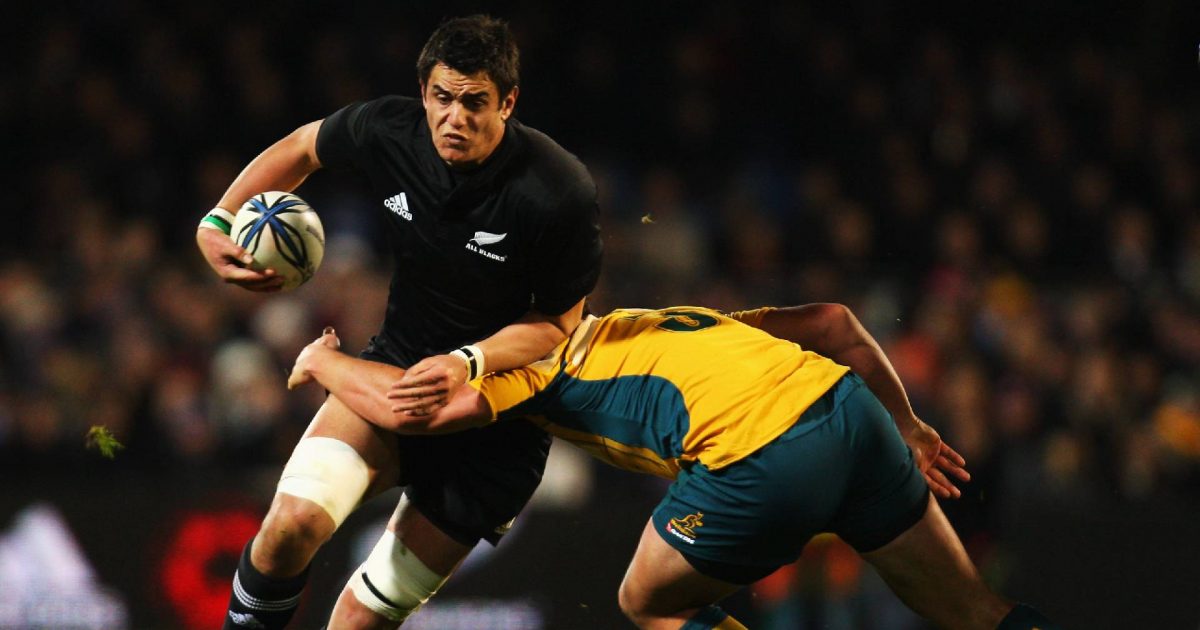'I'm not here to go and try make the All Blacks': Isaac Ross opens up on his last roll of the dice in New Zealand

As one door closes on Isaac Ross’s long-term stint in Japan, another has opened in the twilight of his career.
Little over a month after speaking to RugbyPass of his quest to overturn a Top League ruling that effectively ruled him out of a contract on the basis that he isn’t Japanese, the former All Blacks lock has returned to New Zealand rugby for the first time in nearly a decade.
For the past nine years, the 35-year-old had plied his trade for the NTT Communications Shining Arcs, but was left without a club earlier this year due to his foreign status, despite the fact he has held a Japanese passport since 2017.
Labelling the ruling as “discriminatory”, Ross was joined by former All Blacks Sevens representative Colin Bourke and ex-Australian sevens star Brackin Karauria-Henry – all of whom are Japanese citizens – in a bid to have the rule changed to allow them to stay in Japan.
Their bid fell flat last month, however, after the Japan Rugby Football Union confirmed there would be no change to the law for the upcoming Top League season.
That has led Ross back to New Zealand, where he last played for the Chiefs in 2011, as he answered an SOS call from former Crusaders teammate Joe Wheeler to help fix a shortage of locks at reigning Mitre 10 Cup champions Tasman.
“Tasman had a bit of a locking crisis. One of them made the All Blacks, Quinten Strange. Pari Pari Parkinson had ankle surgery and then Quinten rolled his ankle, but he was going to be away on All Blacks duty,” Ross told RugbyPass from Nelson.
“There were a couple of other local guys at lock that got injured. They were down to four locks but were left with the young guys – apart from Alex Ainley, who’s 39 and still killing it – but they were basically short in the locking stocks.
“They were missing a little bit of experience with Quinten and Pari not in there, and it was just an opportunity to bring someone like myself in and take the pressure off a little bit.”
It only took a week for a deal to be struck between Ross and the Mako, with the nine-test veteran returning to New Zealand and undergoing the mandatory two-week quarantine period in time to make his Tasman debut in a 33-7 thumping of Bay of Plenty just under a fortnight ago.
The cameo appearance off the bench marked a new chapter in his storied career, one of which he was forced into by the “stubborn” attitude of Japanese officials.
One-test All Blacks star Josh Ioane will sit out Otago's Mitre 10 Cup clash against Northland on Friday after breaching team protocol. #Otago #Mitre10Cup #AllBlacks https://t.co/UlycpA4QW4
— RugbyPass (@RugbyPass) October 22, 2020
“It was always going to be a long shot with the decision in Japan, but I was willing to give it the last roll of the dice,” Ross said.
“I wasn’t expecting too much. The Japanese are pretty stubborn in their way. They don’t like to acknowledge they’ve made a mistake or something could have been done right.
“I didn’t really expect too much, but at the end of the day, that’s how it is and we’ve got to move on with life.
“One door closes and another one opens, and here’s a fantastic opportunity to come back to New Zealand and give it another shot.
“I’m not here to go and try make the All Blacks or get another Super Rugby contract, but it’s just nice to come back to New Zealand and give back a little bit as well.
“We’ve got a few young guys here trying to make their mark in the world on the rugby scene and I’ve sort of been there, done that, and it’s quite nice trying to have an influence on the next generation.”
It won’t just be in New Zealand where Ross, who made his first-class debut for Canterbury in 2006, will pass on the vast knowledge he has attained at provincial, Super Rugby, Top League and international level.
Following his one-season spell with Tasman, he will head to the United States to take up a player-coach role with the Austin Gilgronis in Major League Rugby.
Ross said he will utilise his time with the Mako to “pick the brains” co-head coaches Andrew Goodman and Clarke Dermody, two men he played against both in New Zealand and Japan, about the transition from playing into coaching.
For now, though, retaining the Mitre 10 Cup title remains firmly at the forefront of Ross’s mind as he and his teammates prepare to host a resurgent Southland side at Trafalgar Park on Sunday.
“As the years have gone on, they’ve made their own mark and become a bit of a formidable force in domestic rugby in New Zealand. It’s no longer just a team that would be quite cool to be part of, it’s now the pinnacle with them being the champions.
“It’s a cool opportunity for me to come in here and learn how they’ve gone from where they were to where they are today.”





























